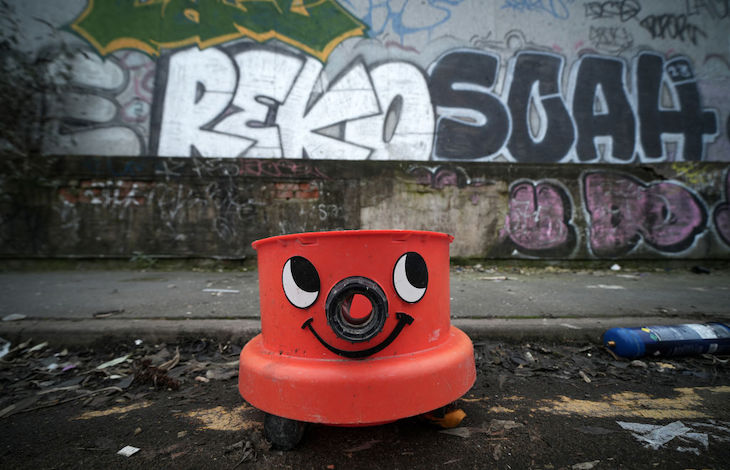My beloved Birmingham, the city I called home for 26 years and where my children grew up, is drowning in a sea of black bin bags. It’s a shocking sight to see this once proud city, that was arguably the centre of the industrial revolution, in such a state. Thousands of tonnes of rubbish is piling up, rats are everywhere – and the stench is dreadful. As the weather warms up, life in Britain’s second city might become unbearable.
It wasn’t always like this in Birmingham. Two hundred years ago, great thinkers met here: Erasmus Darwin, Joseph Priestley, Josiah Wedgwood, James Watt and Matthew Boulton among them. Towards the end of the nineteenth century, George Cadbury established his Bournville ‘factory in a garden’. Later, the British motor industry set up shop in the city. There are more miles of canal than Venice and almost as many trees as people. But this spring, Birmingham is an embarrassment rather than something to be proud of.
The current rubbish crisis arises from a dispute between the city and its binmen over the council’s decision to scrap waste recycling and collection officers. Walkouts started in January, but since 11 March there has been an indefinite all-out strike, five days a week. On Monday, Birmingham City Council declared a major incident. It’s about time: the city’s rubbish-strewn streets are reminiscent of the 1970s. But don’t expect this dispute to be resolved any time soon.
The sad fact is that Birmingham is broke. The city declared itself effectively bankrupt in 2023. After ending all non-essential spending, the council issued a Section 114 notice to say that they didn’t have the means to meet its financial liabilities and could not commit to any new spending. Council tax went up almost 10 per cent last year; this week, it was hiked by another 7.5 per cent. These are grim times for my former neighbours.
Birmingham’s woes stem back years. A troubled IT system – originally expected to cost £19 million –could cost more than £90 million to fix, and might not be up and running properly before 2026.
Hosting the Commonwealth Games in 2022 was never going to be a route to riches. The financial contribution from Birmingham City Council and ‘a number of its key partners’ was set at £184 million; the benefits are rather harder to quantify.
But it was an equal pay claim that brought the city to its knees. In April 2010, 5,000 mostly female council staff won their case for equal pay at an employment tribunal. Their claim was that teaching assistants and catering staff had missed out on bonuses given to workers in jobs traditionally done by men, like refuse collecting and street cleaning. Equalities legislation demands equal pay for equal work, and the courts deemed that getting up at the crack of dawn in all weathers and dealing with who-knows-what in the next black bag is comparable to serving school dinners.
Make no mistake, both jobs can be too easily undervalued and underpaid, but they are not the same. Bonuses that were paid to drivers of large vehicles as they navigated narrow residential streets, and those engaged in heavy manual labour, were not applied to the jobs mainly done by women. Having been ordered to make good the discrepancy, the council initially sold off assets. By 2023, the council had shelled out £1.1 billion with another £760 million outstanding. The cupboard is now bare. Ultimately, the bill will be paid by the residents of the city through soaring council tax, amid piles of rubbish uncollected by disgruntled binmen.
Politicians from all three major parties have had a role to play in the mess. Labour is in charge now, but prior to 2012 the city was in the hands of a Tory-Lib Dem coalition, and had been since 2004. Finger pointing hardly helps those unlucky residents who are living on streets that resemble a rubbish dump. One resident told the BBC that the rats were ‘having parties on the grass’. I didn’t spot any revelling rodents when I visited Birmingham last week, but the city I love is in a sorry state.








Comments